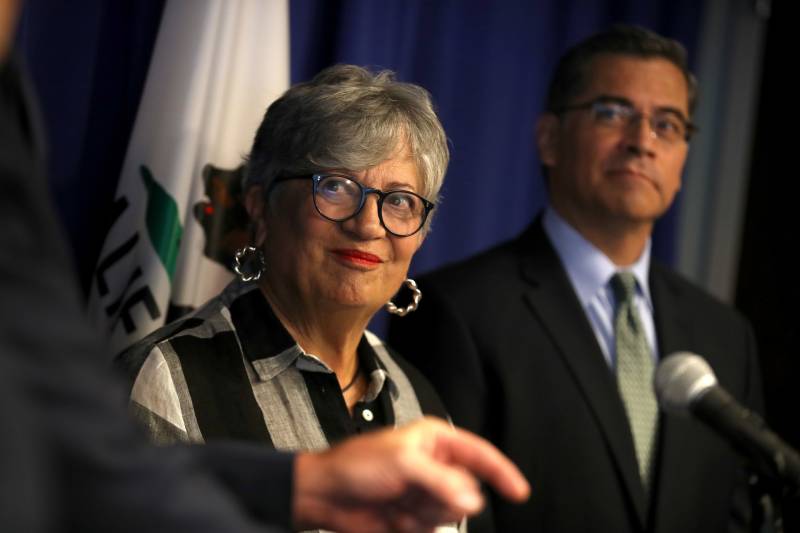Mary Nichols, California’s top air regulator and longtime climate crusader, says the state’s record-breaking wildfire year has strengthened political support to move away from fossil fuels and gasoline engines.
Nichols: Devastating Wildfires Strengthened Support for Ambitious Climate Agenda

Nichols says wildfires that ripped across the state in August and September were what compelled Gov. Gavin Newsom to issue two sweeping executive actions on climate change: a ban on the sale of new gasoline cars by 2035 and an order to conserve 30% of state land.
“It’s been a really bad summer and fire season is not over yet,” she said in wide-ranging comments offered in a livestreaming address to American University’s Center for Environmental Policy and the American Lung Association. The topic of the speech was the future of clean air policy and California’s role in addressing pollution and climate change.
The chair of the powerful state Air Resources Board, Nichols, who is retiring this year, said Californians “see and smell and feel” wildfire smoke “constantly” when the fires are active.
“It’s terrible, depressing, ugly, and it is literally sapping productivity,” she said.
“The one thing that it has done, in addition to solidifying people’s support for moving away from fossil fuels and combustion of all kinds,” Nichols said, “is help make the connection in people’s minds between natural resources policies and our direct controls over emissions.”
She said a major lesson of this year is California needs to “be all in on eliminating all the sources of pollution” and improve “the ability of our natural environment to be able to store and sequester carbon, as well.”
Nichols outlined what, in her view, should be the top priorities for the federal Environmental Protection Agency should Joe Biden defeat Donald Trump and ascend to the presidency.
“The rejection of science and scientists has to be reversed,” she said. “That’s fundamental to everything else, all the programs. The dismissal of people with impeccable credentials who appear to have only committed the sin of being in favor of enforcing the laws.”
Nichols also said that she believes California will prevail against the Trump administration, either in courts of law or courts of or public opinion, in disputes over clean cars and the state’s ability to set its own tailpipe emission rules.
Early this year, California sued the Trump administration after it revoked a waiver allowing the state to set clean car rules that are more stringent than federal standards.
Court battles aside, California’s thriving industry is a powerful signal to other states that the business of electric vehicles can be a boon for the economy and the environment.
Electric vehicles are now one of the state’s top exports. “Not almonds or grapes or any other agricultural produce, as you might think,” she said.
Surprisingly, perhaps, Nichols said she doesn’t assume Amy Coney Barrett, a right-leaning judge whose confirmation vote is scheduled for Thursday by a Republican-controlled Senate, will automatically rule against laws that protect the environment.
She pointed out that Justice Antonin Scalia sometimes ruled in favor of more robust environmental polices. “It’s not because he was a liberal, because obviously he was not,” she said. “But he was a believer in reading the statutes and also in science.”
Last week during Barrett’s confirmation hearing, Sen. Kamala Harris, the California Democrat running for vice president, asked the Supreme Court nominee if she believed that climate change “is happening and is threatening the air we breathe and the water we drink.”
Barrett declined to offer her views on the matter, describing it as a “very contentious matter of public debate.”
The existence of climate change is not contentious, in fact. Multiple studies published in peer-reviewed scientific journals show that 97% or more of actively publishing climate scientists agree that global warming is a result of human activity.
